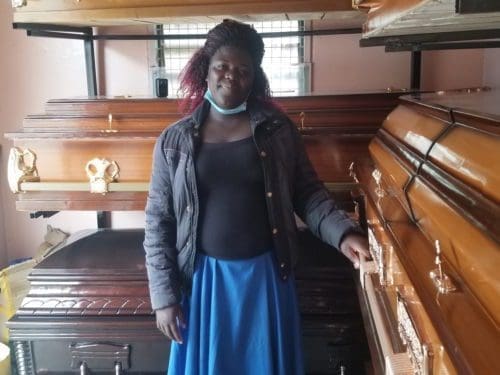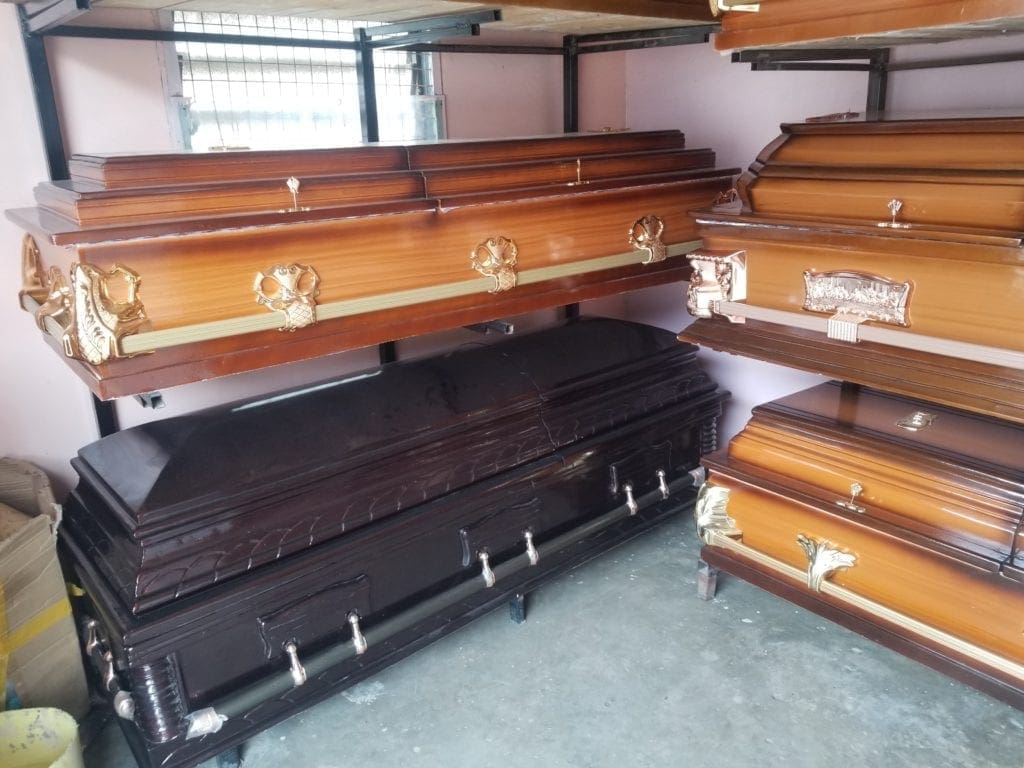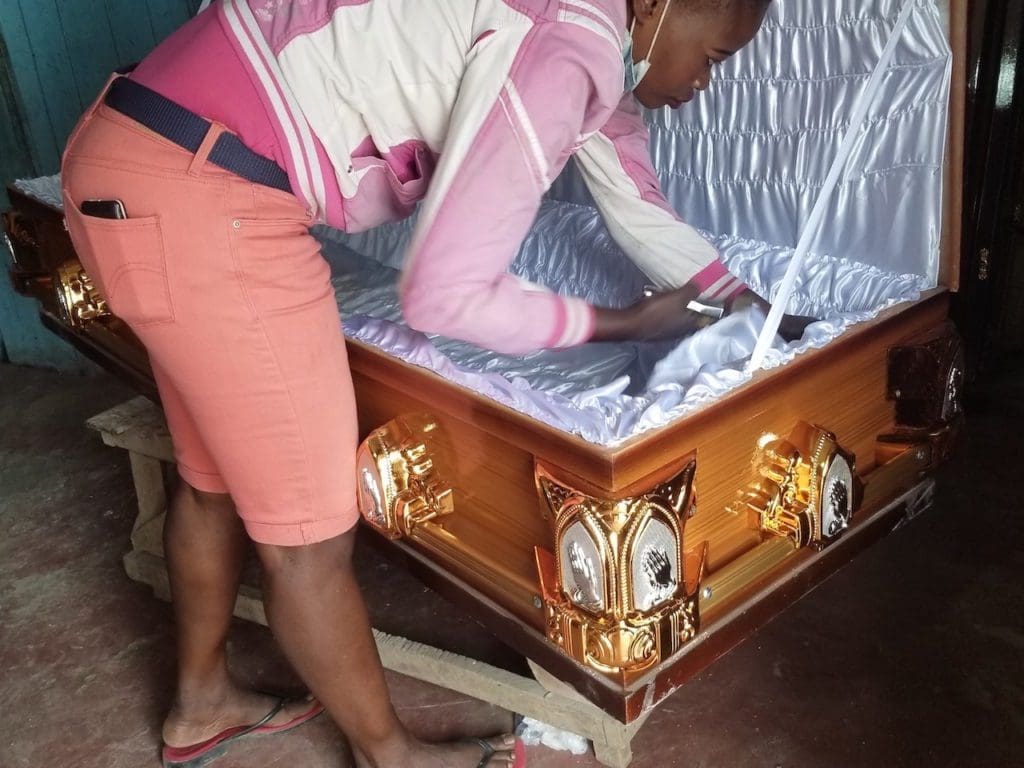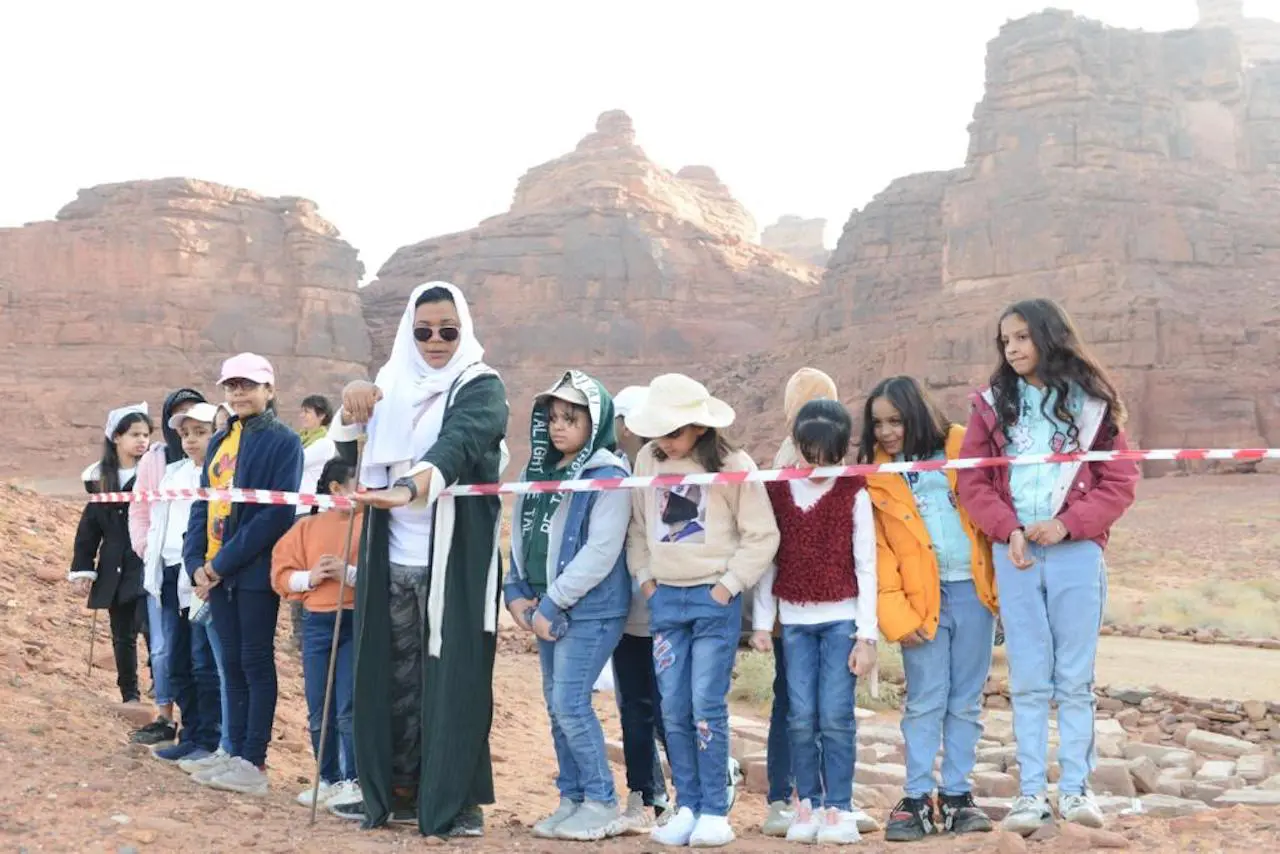Women making coffins are feared in Kenya
Here in Nairobi, some of my neighbors who do know about my profession will not talk to me. They literally fear me because they believe I pray for death so I can make a sale.
- 3 years ago
August 4, 2021

NAIROBI, Kenya — My community believes this business reflects my favor of death. People fear me.
I started working as a coffin maker close to a decade ago. I began as a trainee, helping dress coffins and affix handles, which is the final phase of the process.
I did so well, I decided to move into the business fully, even though I feared what people would think.
Despite the myths and perceptions, my husband supported and encouraged me. I thank God I found many other women here like me, and I have the moral support I need.
From doing laundry to building a business of my own
Before entering the coffin-making industry, I did laundry for people for a small fee.
The money did not sustain my family and my husband’s salary was so small, he could not cater to all of our household needs. We had children in school and faced unavoidable expenses.
A friend told me about this job making coffins. I dismissed her, thinking she must be kidding me. She comes from the same community as me.
How could she think we could work as coffin makers? Our communities’ beliefs about death and anything around it are extremely polarized.
The next day she did not come to work doing laundry. She came in the evening, instead. She told me how things went on her first day as a coffin maker.
I joined her on the third day and here we are. We can comfortably pay our bills and life is no longer rough on us like it was before.
Facing superstition and stigma around the fear of death
This business has more challenges than any other business I know. You need a thick skin to survive here.

I don’t want my community to know about my work because they will automatically distance themselves from me. The Luo, which is my community, believes this business, working with the dead, reflects your favor of death.
Here in Nairobi, some of my neighbors who do know about my profession will not talk to me. They literally fear me because they believe I pray for death so I can make a sale. That is not the case. Death is present and will be forever; coffins will always be needed.
When I began, some people noticed because I was no longer washing clothes for a living. The news spread like hellfire all the way to our local church. On a Sunday morning, I walked into the church hall and sat on a bench. Everyone got up, leaving me to sit alone.
People started avoiding me, even though the offerings I made in church came from the coffins I sold. In my home village, they do not know. People already avoid me. I can’t afford to have my family’s village ostracize me as well.
In Luo-land, people see death as catastrophic; it takes good people away and creates a hole in the community.
When I was 15 years old, our neighbor lost a child. After the burial, the mother saw the coffin maker pass by as she was walking out of her home. She ran back inside screaming. She thought the man was there to deliver a bad omen upon her house.
More recently, a neighbor’s child told my son I make coffins for burying people. He told my son, “We should avoid your home.” I had the hardest time explaining the nature of my job to my son and had to confront my neighbor.
These experiences are embarrassing and dehumanizing.
The everyday life of coffin making
My business is located in a busy area where many people pass by. Working in Nairobi requires you to be aggressive in order to make sales. This is difficult for practitioners like me.
Sometimes, a person you thought was looking for a coffin was really just passing by. When you say something, it creates conflict.
When I started in the business, my trainer did not teach me how to identify a bereaved person. In my third year in the industry, a woman came and stood in front of the shop, facing away from it. I guess she did not know what I was selling. When I approached her, utilizing our sensitive sales script, she almost slapped me.
It took other shop attendants intervening to calm her down. They convinced her that she looked like a potential customer.
Challenges like this have made me good at studying people’s walking styles. I can tell when a person is bereaved now. I can calm them down, and then do business.
A job that made me brave and understand death
When I started this job, I was afraid like anyone else would be. I was afraid of handling coffins on a daily basis, but life demands you to be on your toes, to pay bills, and to support your children.
The fear faded away in time as I thought, “Would I rather be a beggar when I have all this physical and mental capability to work and earn a living?”
This work has helped me grow. I don’t fear death. I have come to learn death is a part of life, placed at the end of everything.
When I began, I feared coffins like other people. When I walked into the shop, all I could think of was death. In the early weeks, I had many nightmares. All of these situations made me brave. I can do things other people fear, like the time I had to rush a new coffin to the morgue because a client purchased the wrong size.
On my arrival at the morgue, I had to put on a pair of gloves, swap the body to the new coffin, and bring the old coffin back to the shop. At first, I thought the morgue attendants were kidding me when they asked me to lift the body.
When I attend funerals, even when it is a family member, I don’t cry. I understand that death is a necessary transition in human life.
People should regard coffin makers as humans, like any other. We are simply working in an industry that is different from their own.












































































































































































































